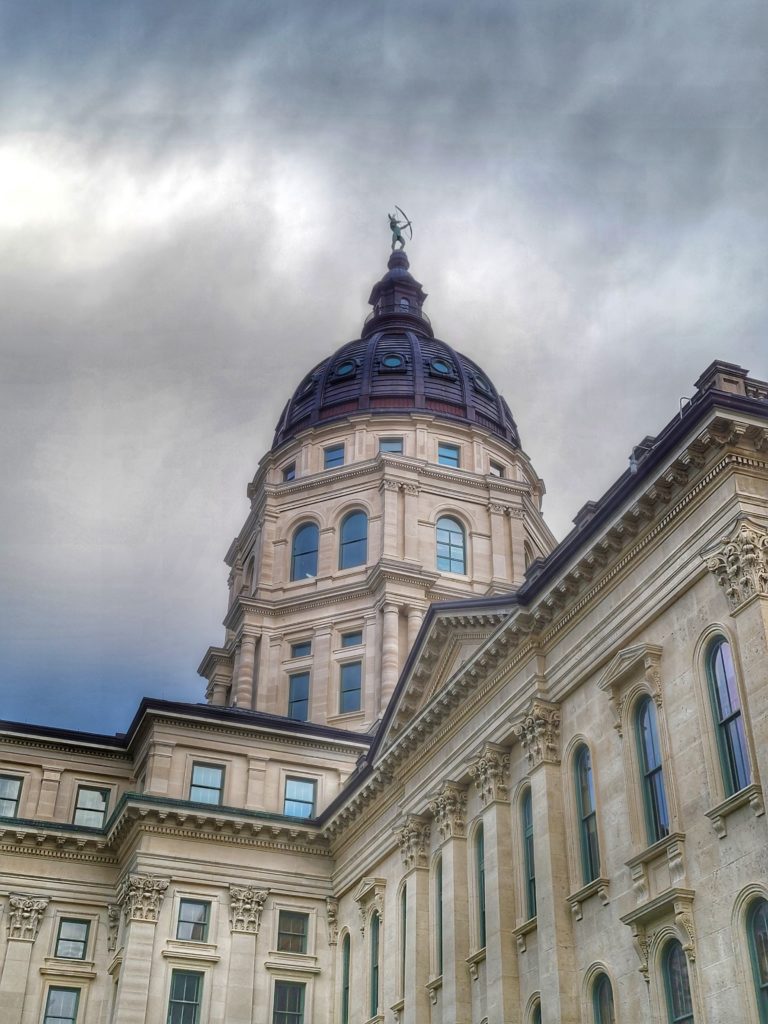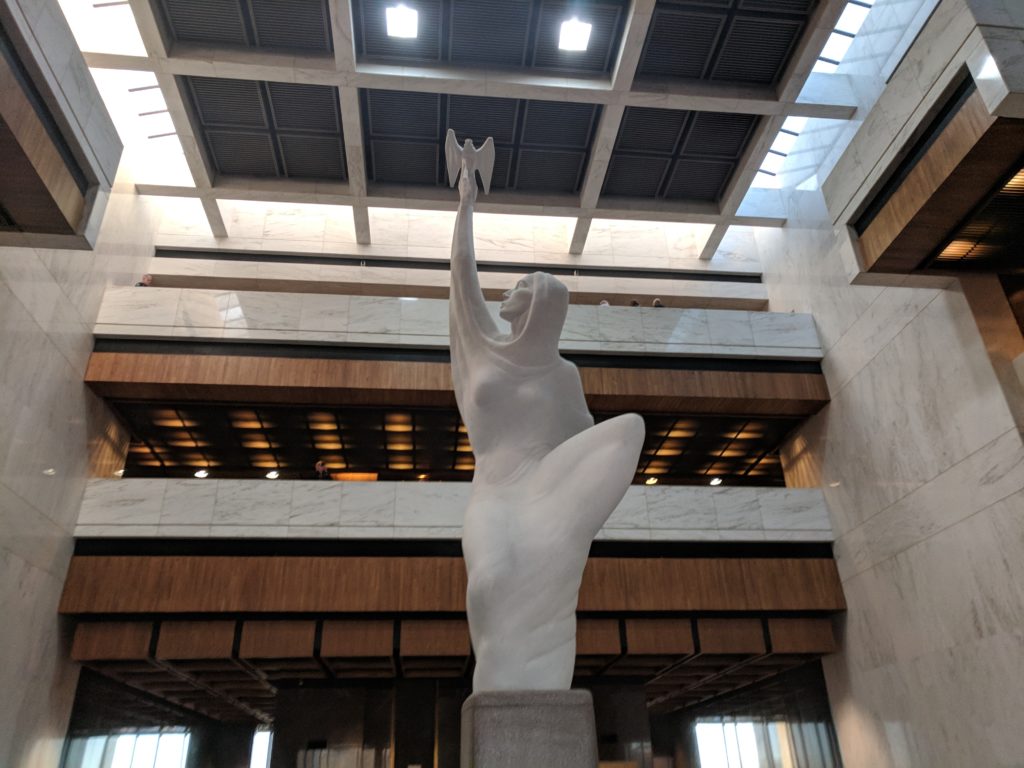Senate Bill 455 allows students to pick and choose what school they want to go to, regardless of the time of year, without added funding to the receiving school district
Another national effort has reached the Kansas Statehouse. This week the Senate Education Committee held a hearing on Senate Bill 455, a proposal that would essentially create open enrollment across Kansas school districts. It would require school districts to accommodate non-resident students at any point in the school year without providing additional funding for them.
Specifically, SB 455 would require school boards to adopt policies detailing the capacity of each building in their district and publish them publicly. Then, districts would be required to accept those students throughout the school year until they reach capacity. If a transfer application is rejected, a parent or guardian of the applicant can challenge the decision and it is elevated to the Kansas State Board of Education. If it is determined that capacity has not been accurately defined by the district, the state board can define it and the district is required to adopt that.
It should be noted school districts already have transfer policies in place and have the authority to determine whether to accept additional students. In fact, there are currently more than 20,000 students attending a school outside of their residential area. Only nine school districts in the state report zero nonresidential students and the reasons are unknown.
Proponents of the bill include three organizations, two of whom are well-known for their advocacy efforts to create vouchers for private schools, to pass tax breaks for giant multinational corporations, and to object to increasing funding to public schools. The third is an out-of-state nonprofit with a mission of “transforming education.” They all argue this bill is needed to help meet the needs of at-risk students. Yet, none of them considered that these same students likely would not have access to reliable transportation or have adults in their lives with schedules to accommodate transportation to an out-of-district school.
The proponents even went so far as to say ZIP code and financial status should not determine the quality of education a student receives. We agree with them on this point! That’s why we believe it is critical to maintain adequate and equitable levels of funding for our schools. But we know these same groups- who have worked for years to erode public schools- haven’t suddenly had a change of heart.
So, it makes one wonder… what is this really about? Is this just the first step towards forced consolidation and creating one school district for the entire state? Or, is it just about creating more chaos for our school districts to, once again, try to set them up for failure and point to schemes like vouchers and privatization as the solution? KNEA opposes this bill. Stay tuned on the fate of this cumbersome and unnecessary proposal.
Parents Bill of Rights passes out of Senate Education Committee
Another unnecessary proposal taken up by the Senate education panel this week was the “Parents’ Bill of Rights” that passed out of committee on Tuesday without amendments. Senate Bill 496 now heads to the Senate for consideration by the entire chamber.
As you may recall, this bill specifically outlines 12 rights for parents in regard to their child(ren). The bill affords parents with any rights they do not already currently possess and have been supported by case law at the state and federal levels. This version does not specifically include requirements for posting lesson plans. However, it does mandate that local school boards adopt policies that align with the rights, including the right to “inspect and review all educational and health records” as well as the right to “object to any learning material or activity.” The bill does not contain penalties for school districts. Nonetheless, KNEA opposes the bill.
Senate Ed passes out bill to keep transgendered girls out of many school sports and activities
On a 4 to 3 vote, the Senate Education Committee passed out Senate Bill 484, which would prohibit transgender girls from participating in female athletics and other activities. KNEA has always opposed this bill and believes this is an example of a solution in search of a problem.
KNEA strongly believes the governance and regulation of extra-curricular school athletics are under the jurisdiction of the Kansas State High School Activities Association. The professionals who oversee that body are uniquely qualified and expected to determine the implementation of Kansas sports programs in our schools. As the regulatory body for extra-curricular school athletics, KSHSAA has an existing policy that governs the participation of transgender girls in sports.
Most importantly, KNEA supports equal rights and equity of opportunity to all persons regardless of race, gender, gender identity, sexual orientation, religion, or ethnicity. SB 484 directly contradicts our commitment to this core value.
Kansas law grants exemptions to such things as school-required vaccinations citing a family’s “sincerely held beliefs.” Proposed legislation, just this year, exempts teachers from teaching subjects that don’t align with their “sincerely held beliefs.” SB 484 violates the sanctity of the core identity of transgender athletes. This is discriminatory and- once again- underscores the all too familiar contradictory nature of the extremists who occupy many leadership positions in the statehouse.
Just as we did during the 2021 legislative session, we will be keeping a close eye on this bill as it has the potential to be heard on the Senate floor.
Resolutions for amendments to the Kansas Constitution impacting the selection of Kansas Supreme court judges headed to the full Senate
A pair of Senate Concurrent Resolutions are likely headed to the full Senate for consideration after passing favorably out of the Senate Judiciary Committee this week.
SCR 1621 and 1622 are resolutions that propose constitutional amendments to change the process by which Kansas Supreme Court justices are selected.
Passage of these resolutions would require a two-thirds vote in both the House and Senate and would result in a primary August ballot question that would have to achieve a simple majority of the electorate to amend the Kansas Constitution.
SCR 1621 would eliminate the Supreme Court Nominating Commission and allow the Governor to appoint a qualified person to the position with the consent of the Senate. SCR 1622 would replace the current method of selection with election of Kansas Supreme Court justices at the next general election, and would eliminate the Supreme Court Nominating Commission. Elections would be partisan and from the state as a whole, and election laws would be applicable. Justices would serve six-year terms.
KNEA opposes these resolutions for several reasons. A number of issues have been cited as the cause of the attacks on the high court but the root of the attacks really boils down to a couple of social issues and school finance or “following the money.”
The school finance rulings issued by the courts have ensured the legislature has funded schools at a level that satisfies the Kansas Constitution, but is much higher than many of the far-right legislators and special interest groups are comfortable with. These special interest groups fail to see a fully funded education system as part of a healthy economic development strategy. Instead, these groups prefer lower tax rates on corporations as the sole tool used to attract and retain businesses. Many legislators who owe their political existence to the “dark money” – that has been churned out, and funnels through, these far right groups – march in full solidarity with “the ultra-conservative agenda.”
This agenda includes less funding for public education and attacks any group that has had a hand in advocating for fair funding of public education. In the case of the Kansas Supreme Court, they are not advocates but merely “referees” in this fight. And due to their rulings, which have allowed us to do our jobs and educate our children, the justices are labeled activists and the disinformation machine is running strong.
In short, the attacks on Kansas’ high court have as much to do with educators as all the other attacks on education do and these two resolutions, by proxy, are attacks on teachers and public education.
Proposed amendment to the Kansas Constitution could have dramatic impact on school finance if enacted
On Thursday, the Senate Assessment and Taxation Committee favorably passed out SCR 1620, yet another proposal aimed at changing the Kansas Constitution. If added to the state’s constitution, it would enact or amend any law creating any new state tax or increasing the rate of existing state income tax, sales tax, compensating use tax, other excise tax, property tax, estate or inheritance tax or a tax in the nature of such taxes beginning July 1, 2023.
KNEA has been a leading champion in the ongoing push to ensure that public education in Kansas is funded adequately and equitably. Given this commitment, KNEA is more concerned about the impact SCR 1620 would have on Article 6 of the state constitution that sets forth the legislature’s responsibility to suitably fund public education.
Kansas students will learn in government, social studies, and economic classes that our state and national economies experience significant downturns and upswings on a regular basis. This dynamic of consistent fluctuation demonstrates a basic need for the legislature to have the flexibility to act, and react, appropriately without the same sort of gridlock that Americans have grown accustomed to seeing in Washington, DC. Should Kansas face budgetary challenges in the future, an inability to make appropriate changes to tax policy could be extremely detrimental to the funding of public education.
KNEA opposes SCR 1620 and will be watching it closely as it is likely to head to the full Senate for consideration.
We need your help to pass the Kansas Teacher Service Scholarship Program!
Rep. Mari-Lynn Poskin, D-Leawood, along with 34 bipartisan co-sponsors, has introduced a bill to double the amount of money allocated to the Kansas Teacher Service Scholarship Program. House Bill 2626 would provide a little more than $3 million to provide scholarships of up to $5,830 per academic year for students pursuing bachelor’s or master’s degree programs as well as currently licensed teachers pursuing new endorsements in hard-to-fill disciplines.
This is a great bill, but it hasn’t received a hearing yet. With just three weeks left of regular session, we need you to please contact the following members of the House Appropriations Committee to ask them to schedule a hearing: Rep. Troy Waymaster, Chair (troy.waymaster@house.ks.gov); Rep. Kyle Hoffman, Vice Chair (kyle.hoffman@house.ks.gov); Rep. Kathy Wolfe Moore, Ranking Minority (kathy.wolfemoore@house.ks.gov).





